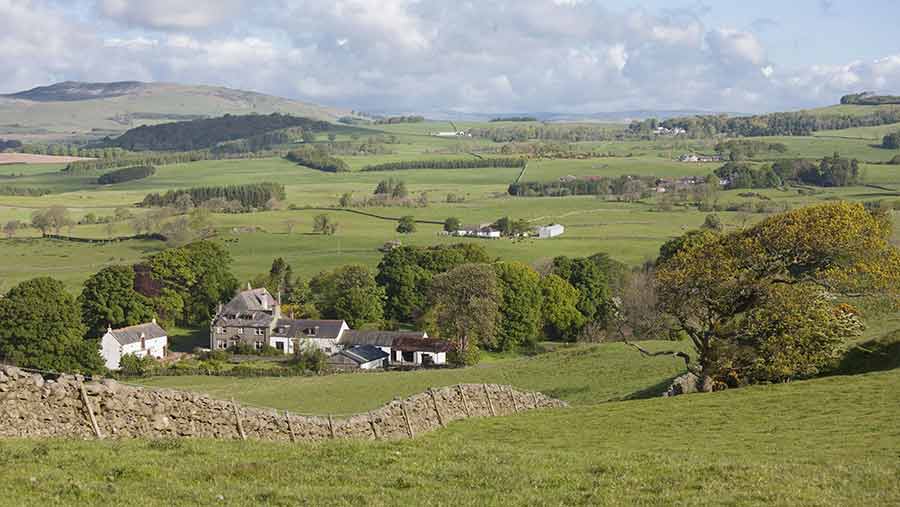Farm rents rise by 4% in Scotland
 © Design Pics Inc/REX/Shutterstock
© Design Pics Inc/REX/Shutterstock Farm rents in Scotland rose by an average of 4% in 2016, according to government statistics.
The Scottish government has released its annual report on Tenanted Agricultural Land in Scotland.
It shows that the average rent for land was £40/ha in December 2016 compared with £39/ha the previous year.
See also: Survey shows farm rents are still increasing
The increase was seen in both the poorer-quality Less Favoured Area (LFA) land, which was up 4% from £26 to £27/ha, and in the better quality land, which rose by 5% from £130 to £137/ha.
The report calculates average rents based on information supplied in the December census, so includes those farms where the rent has not changed, in addition to those where rents have been reviewed.
Rents were highest in Fife and the Lothians, with three-quarters paying over £74/ha. They were lowest in Shetland and Na h-Eileanan Siar (Outer Hebrides), where over half of rents were less than £4/ha.
Above inflation
Orkney showed much higher rents than elsewhere in the North-West region, reflecting the fact that location alone does not drive prices and Orkney is sustaining strong cattle and cereal sectors.
The Scottish government said average rents had increased above inflation each year since 2008.
“Since then the overall average rent has increased 47%, or 30% after accounting for inflation, with LFA land rising 62%, or 44% in real terms.
“In recent years there has been a reduction in the area of land rented under cheaper, long-term rental arrangements, and an increase in shorter-term limited duration tenancies.
“These arrangements are often more expensive, and this has driven up the overall average cost of renting.”
Brexit fears
The Scottish Tenant Farmers Association (STFA) recently appealed to landlords to factor in the impact of Brexit into any rent reviews.
The STFA said landlords should not be expecting rent increases in the next few years and tenants should not sign up to anything that could jeopardise the future viability of their businesses because they would be locked in for three years.
Tenants should factor in the impact of rising input costs, particularly for imported goods such as fertiliser and animal feed proteins, when negotiating rents, it said.
